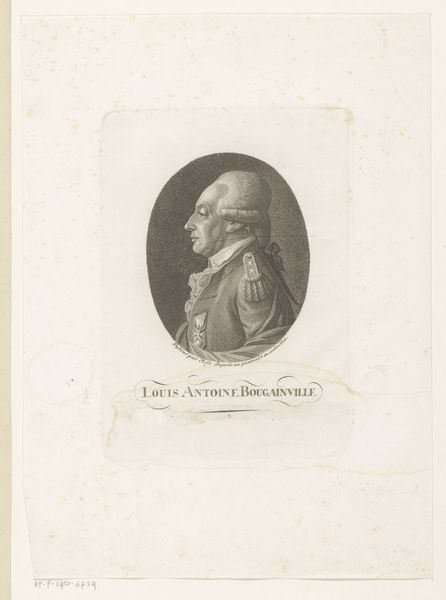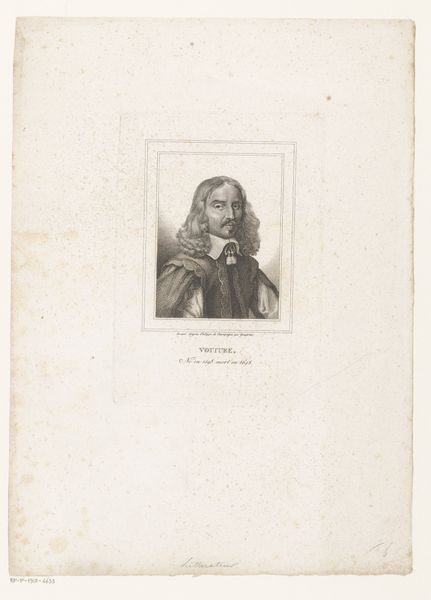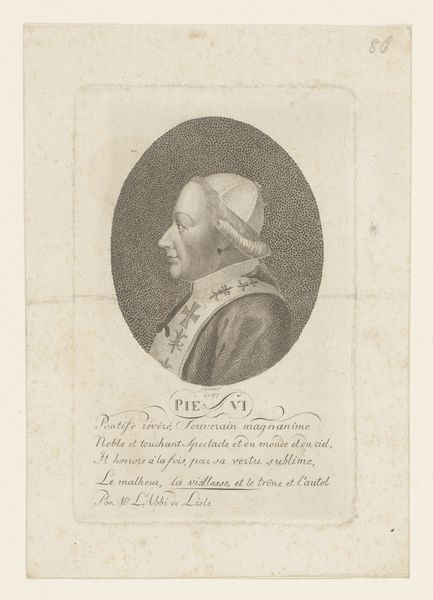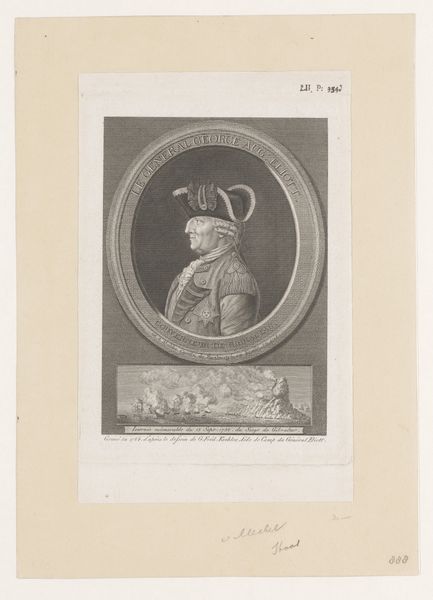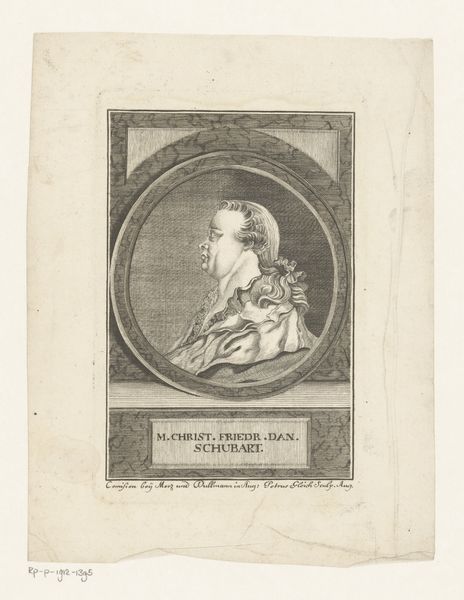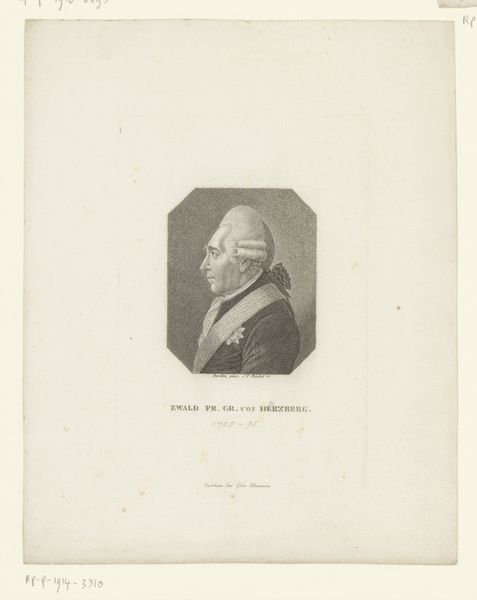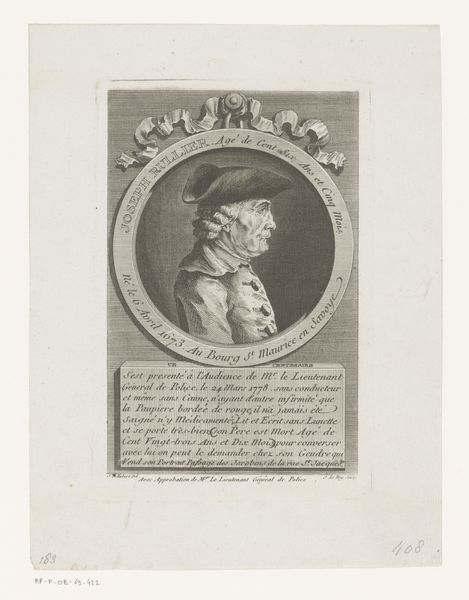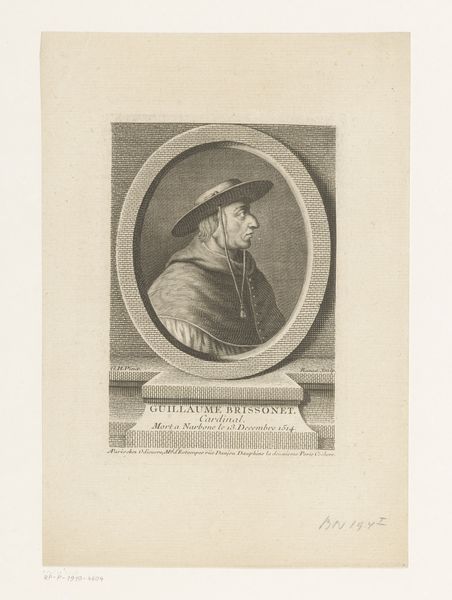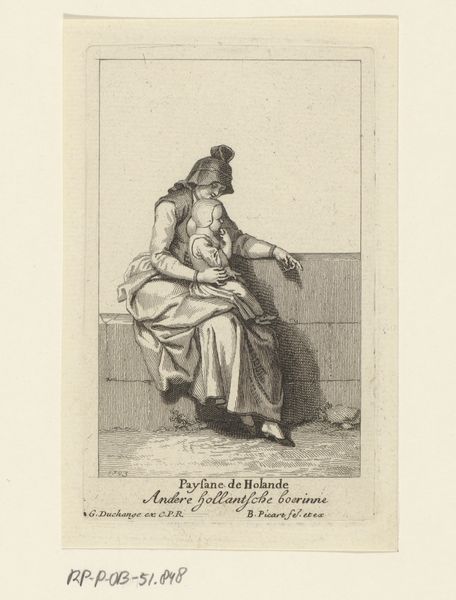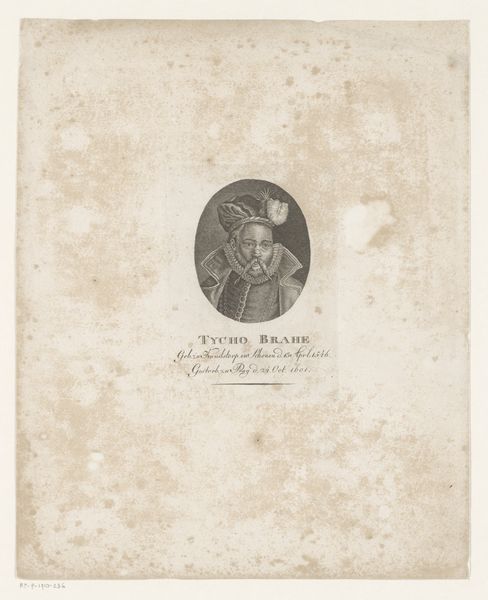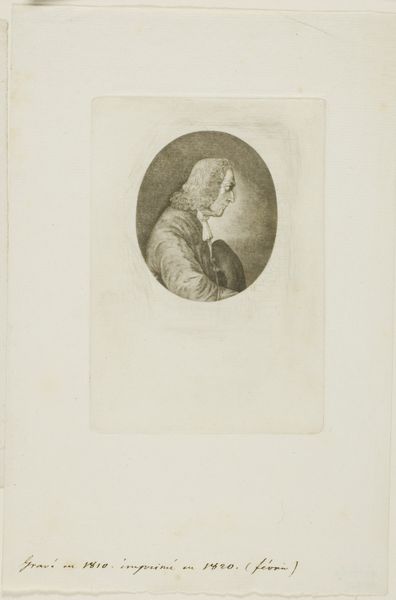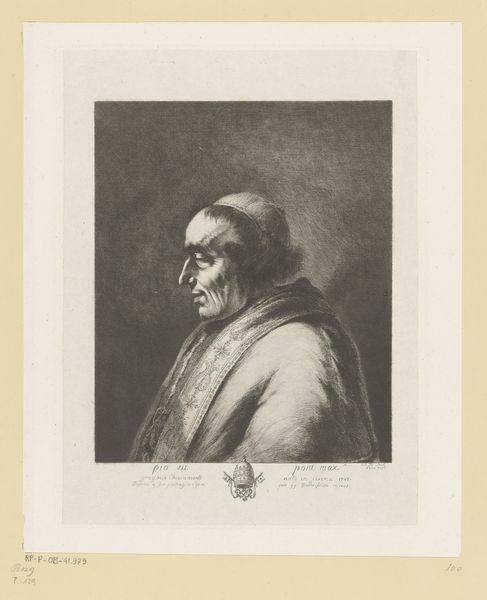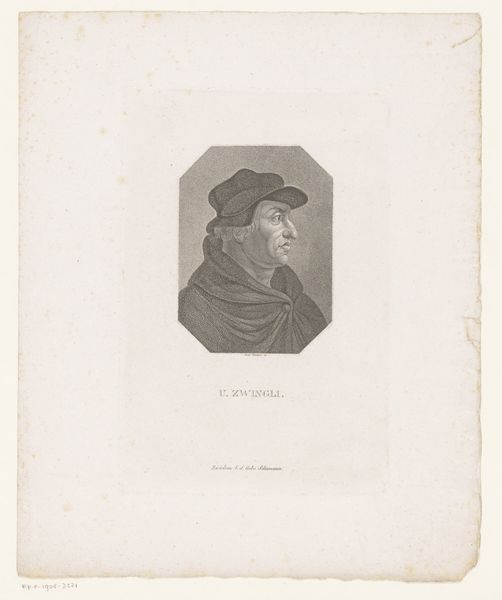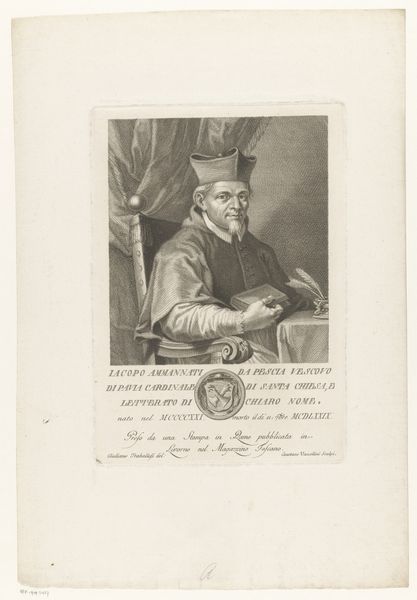
#
photo of handprinted image
#
aged paper
#
light pencil work
#
photo restoration
#
ink paper printed
#
pencil sketch
#
light coloured
#
old engraving style
#
archive photography
#
personal sketchbook
Dimensions: height 160 mm, width 103 mm
Copyright: Rijks Museum: Open Domain
Editor: So this is "Apostel Jakobus de Meerdere," dating roughly from 1712 to 1786, by Giovanni Marco Pitteri. It appears to be an ink print on paper, and it reminds me of something you’d find in a very old book, the kind with slightly unsettling illustrations. How do you interpret this work? Curator: Immediately, I see the recurring visual motif of the pilgrim, signified by the walking staff, but it is more than just identification. The shell, the traditional symbol of St. James, is absent, forcing the viewer to rely solely on the staff. What does this say about how identity and cultural memory can persist, even with diminished markers? Editor: That’s interesting. I hadn’t considered the absence of the shell. Curator: Exactly! Its absence could imply a period of uncertainty or questioning of the saint's identity, perhaps reflective of societal shifts during that era. Or perhaps it underlines a personal rather than an iconic significance of pilgrimage and self-discovery. How does that lack change our emotional response? Editor: I think it makes it more human. More relatable, even though he's a saint. Almost vulnerable. Curator: Precisely. And this vulnerability connects across centuries. Pitteri utilizes a familiar trope, yet its subtle alteration encourages viewers to question preconceived notions of sanctity and recognize shared experiences of doubt and resilience. Editor: I never would have thought so much was conveyed through the absence of something. Thank you for illuminating those cultural cues! Curator: It’s in these details, or lack thereof, that the enduring power of images lies. We interpret symbols, but absence also resonates through time.
Comments
No comments
Be the first to comment and join the conversation on the ultimate creative platform.
